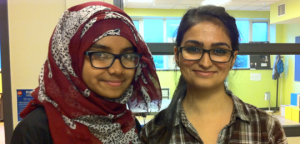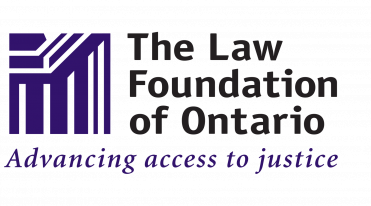How old do I have to be to move out on my own? If I put my song online, can anyone use it? If I already said yes to sex but want to change my mind, can I?

More often than not, when we think about the law, we think of it as being an issue for adults. It’s something that applies to grown-ups, not children and youth. But that isn’t true. The law applies to, and affects people of all ages. Children and youth encounter legal questions and decisions in their daily lives and most have little information, or worse, misinformation, about the law and their rights and responsibilities. Although we do not always think about it as such, a young person’s interactions with housing, school, jobs, families and relationships all intersect with the law.
The Law Foundation of Ontario recently funded a project called Youth & the Law TV Project coordinated by Regent Park Focus Youth Media Arts Centre in Toronto’s Regent Park neighbourhood. The youth involved in the project, ranging in ages from 14 to 25, were eager to learn about the legal issues that were affecting their lives.
During the project’s six month timeframe, the youth participated in educational workshops with legal experts including representatives from Ontario Justice Education Network (OJEN), Toronto Police Community Services (TPCS) and Justice for Children and Youth (JFCY). The topics and speakers were chosen by the youth and covered the questions and concerns that were most pressing to them. The legal topics covered included landlord and tenant, copyright, education, child protection, sexual assault and human rights.
With the knowledge they gained, the youth then created a number of TV and radio talk shows and dramas. The shows were shared through Regent Park Focus’ website, online radio station and YouTube channel and will be broadcast on Regent Park TV, a closed circuit network serving the neighbourhood, and on the Rogers Community Channel 10.
In addition to specific laws, the project also gave the youth the opportunity to learn how the justice sector works and the players involved. Their impressions of lightening speed court cases as seen on TV were replaced with an understanding of the processes, and the amount of time and people involved, in the legal system.
“Before this project, I didn’t know very much about the law. I knew about lawyers but I had no idea what a paralegal was. I didn’t know organizations like OJEN existed,” said 17-year-old Maeashah Haque. “I learned a lot. And now, I can refer back to it. If I didn’t know, I would probably just give up. Now I know what to do and where to go for help. We can advocate for ourselves, and our friends. And, that can bring a change.”
Eighteen-year-old Amrit Sabharwal had a similar experience. “I learned things I didn’t even know were part of the legal system. Things like, you cannot drop out of school until a certain age. As a young person you want to have a successful life but sometimes young people do things that are not going to make them successful, and knowledge of the legal system helps you understand what you should do, and what you shouldn’t.” Ms. Sabharwal added. “If you’re watching a friend who is going through something and you really want to help but are not able to help, that’s when you look at the legal issues. Through information I learned, I was able to help people that were my age. It’s definitely important.”
One of the project’s guest speakers was Mary Birdsell, B.A., LL.B, who is the executive director of Justice for Children & Youth.
“One of the things I think is really significant about these types of programs is the way in which they really engage young people to get informed,” said Ms. Birdsell. “They gain the sense that they might have rights that are actually theirs; that they don’t have to access through an adult. I think it’s empowering.”
Understandably, school was one of the topics the youth were very interested in. Not only did the majority of youth not know that they had to reach a minimum age, by law, to leave school, most were not aware that they had certain rights to stay in school too.
Ms. Birdsell shared an example of how young people’s lack of awareness of the law and of their rights can have a lifetime consequence. A high school administrator asked a young person to leave the school because he had reached the age of 18, even though the student had not graduated yet. What the young person did not know is that the law can allow for up to seven years of a free high school education. This young person’s prospects in life will vary greatly depending on whether he leaves high school without a diploma or exerts his right to have more time to graduate.
“I think the greatest access to justice issue for young people overall is the failure by adults to recognize young people as independent rights holders”, added Ms. Birdsell. “Children and youth have the right to expect their rights to be respected.”
Adonis Huggins is the executive director of Regent Park Focus Youth Media Arts Centre. One of his main goals is to help the youth at the centre to share what they learned with a broader audience and help more young people understand the law and how to apply it in their lives. “The more we can create youth-friendly resources that are made available where youth are interacting and engaging, those are the kinds of projects that will be really helpful in making young people aware and educated in the justice system, and making it accessible.”
—
You can see all of the Youth & the Law videos on Regent Park TV’s YouTube Channel

